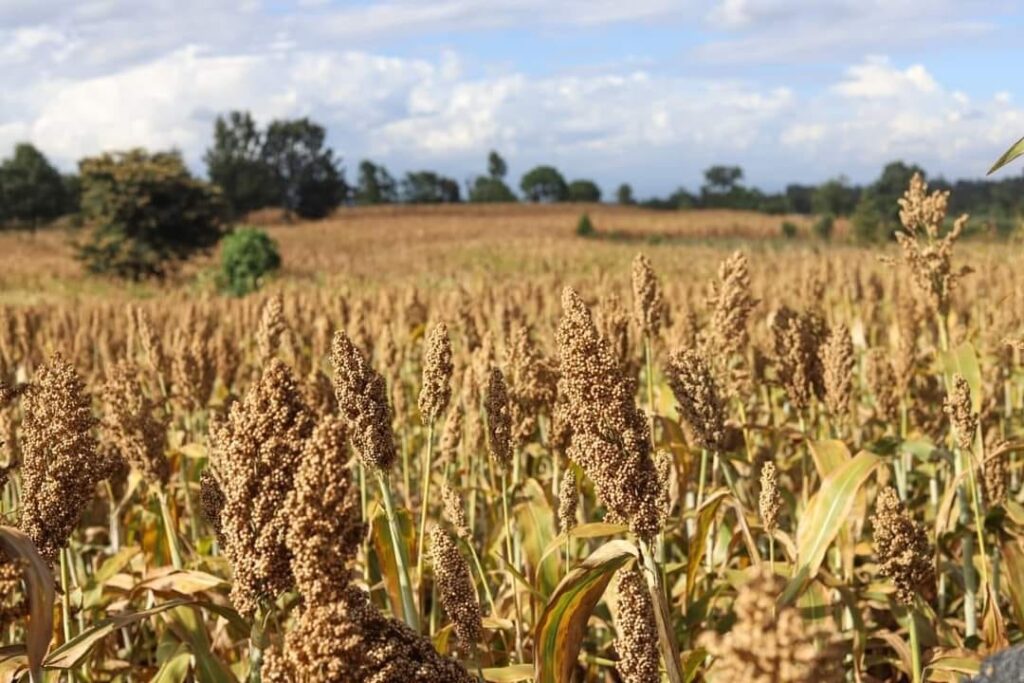
By John Waithaka
In the heart of the Mwea region, where 77% of the land lies in semi-arid conditions, a quiet agricultural revolution is underway. Farmers in this challenging environment are finding hope and prosperity through the cultivation of sorghum—a crop that is not only resilient to the harsh climate but also economically rewarding.
member of parliament the Hon Mary Maingi said that this transformation has been driven by strategic initiatives, including the recent distribution of sorghum seeds to farmers across the region. With the ongoing rains offering much-needed nourishment, optimism runs high that this season will be as fruitful as the previous ones.
Over the years, Mwea farmers have embraced sorghum farming not just as a subsistence crop but as a reliable source of income. Thanks to partnerships with Kenya Breweries Limited (KBL), farmers are guaranteed a ready market for their harvests, ensuring their hard work translates into tangible benefits. The direct purchases by KBL not only provide financial stability but also motivate farmers to scale their operations, contributing to the region’s overall economic growth.
For many, sorghum has become synonymous with resilience and opportunity. It is a crop that defies the odds of semi-arid farming, offering a lifeline to communities that once grappled with the uncertainties of food insecurity and economic instability.
As this season unfolds, the optimism in Mwea is palpable. Farmers are hopeful for another bountiful harvest, one that will not only put pesa mfukoni (money in their pockets) but also reinforce the transformative power of agriculture in addressing the challenges of climate change and rural poverty.
The story of Mwea’s farmers and their journey with sorghum is a testament to what strategic partnerships, innovation, and sheer determination can achieve. It is proof that even in the most unforgiving environments, growth and prosperity are possible.

More Stories
NEMA Conducts Public Forum on Draft E-Waste and Environmental Assessment Regulations
TVET and Micro-Credentials Key to Youth Employment, Says Dr. Ekrah Ndung’u
NATIONAL LAND COMMISSION CEO JOINS COUNTY FIRST LADIES FOR LAUNCH OF 2025–2028 STRATEGIC PLAN**